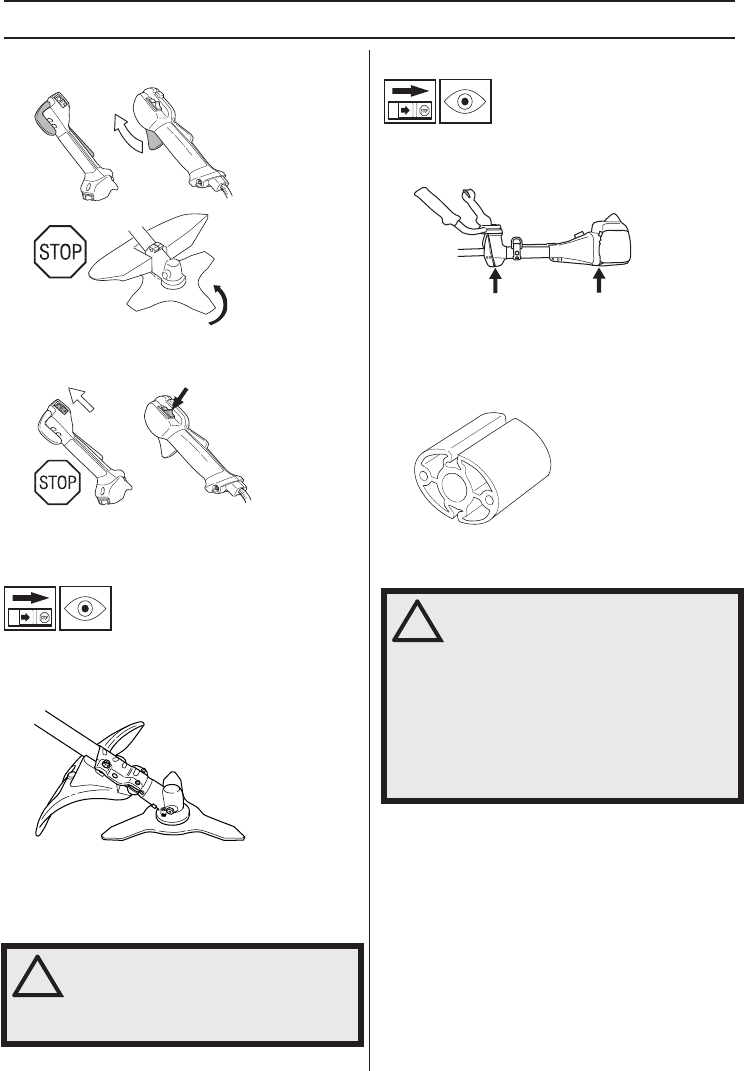
GENERAL SAFETY PRECAUTIONS
10 – English
be checked. See instructions under the heading
Maintenance.
Stop switch
Use the stop switch to switch off the engine.
Start the engine and make sure the engine stops when
you move the stop switch to the stop setting.
Cutting attachment guard
This guard is intended to prevent loose objects from being
thrown towards the operator. The guard also protects the
operator from accidental contact with the cutting
attachment.
Check that the guard is undamaged and not cracked.
Replace the guard if it has been exposed to impact or is
cracked.
Always use the recommended guard for the cutting
attachment you are using. See chapter on Technical data.
Vibration damping system
Your machine is equipped with a vibration damping
system that is designed to minimize vibration and make
operation easier.
Use of incorrectly wound cord or an incorrect cutting
attachment increases the level of vibration. See
instructions under the heading Cutting equipment.
The machine′s vibration damping system reduces the
transfer of vibration between the engine unit/cutting
equipment and the machine
′s handle unit.
Regularly check the vibration damping units for cracks or
deformation. Check that the vibration damping element is
undamaged and securely attached.
Quick release
There is an easily accessible, quick release fitted at the
front as a safety precaution in case the engine catches
fire, or in any other situation that requires you to free
yourself from the machine and harness. See instructions
under the heading Adjusting the harness and brush
!
WARNING! Never use a cutting
attachment without an approved guard.
See the chapter on Technical data. If an
incorrect or faulty guard is fitted this can
cause serious personal injury.
!
WARNING! Overexposure to vibration
can lead to circulatory damage or nerve
damage in people who have impaired
circulation. Contact your doctor if you
experience symptoms of overexposure
to vibration. Such symptoms include
numbness, loss of feeling, tingling,
pricking, pain, loss of strength, changes
in skin colour or condition. These
symptoms normally appear in the
fingers, hands or wrists. The risk
increases at low temperatures.


















